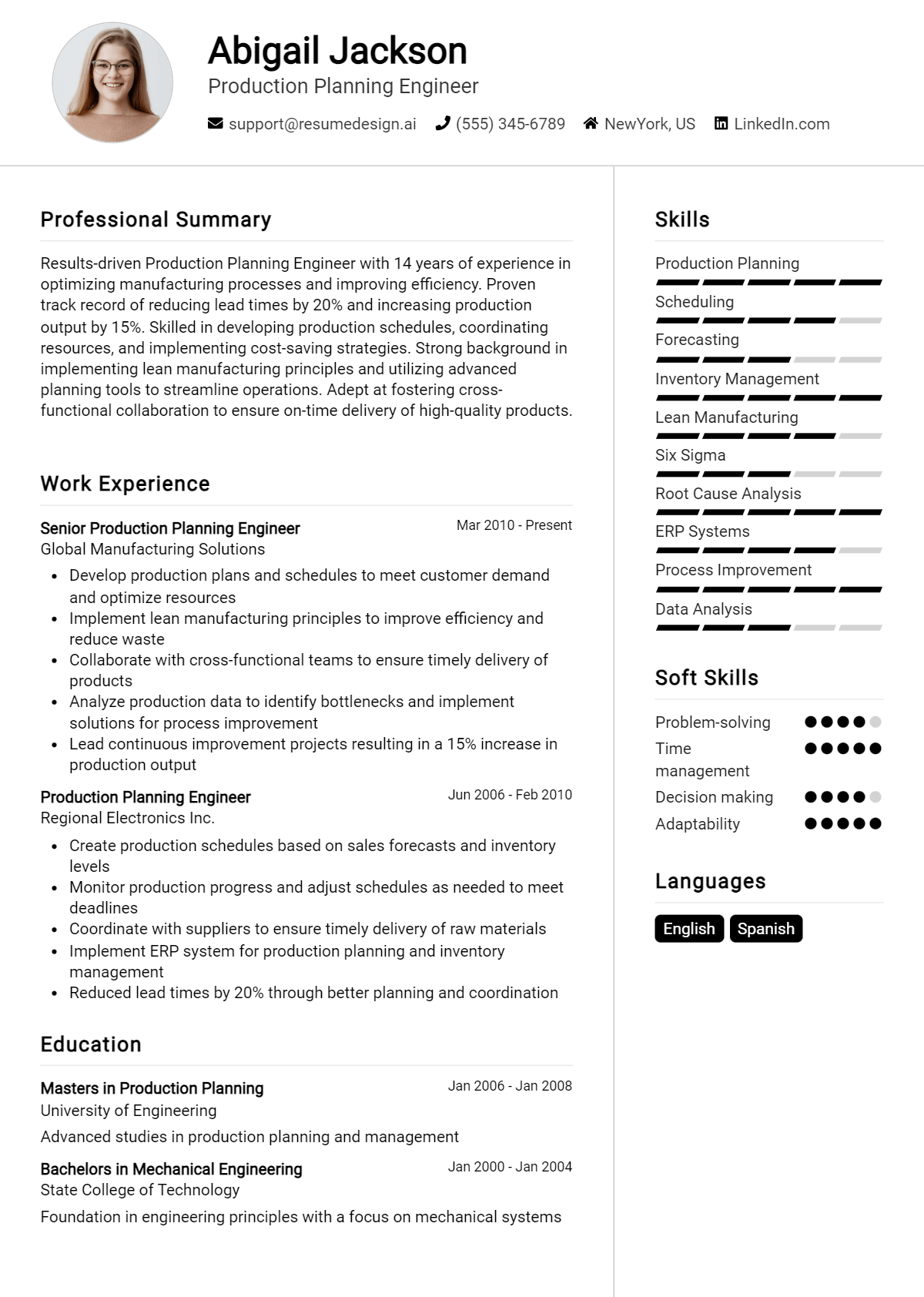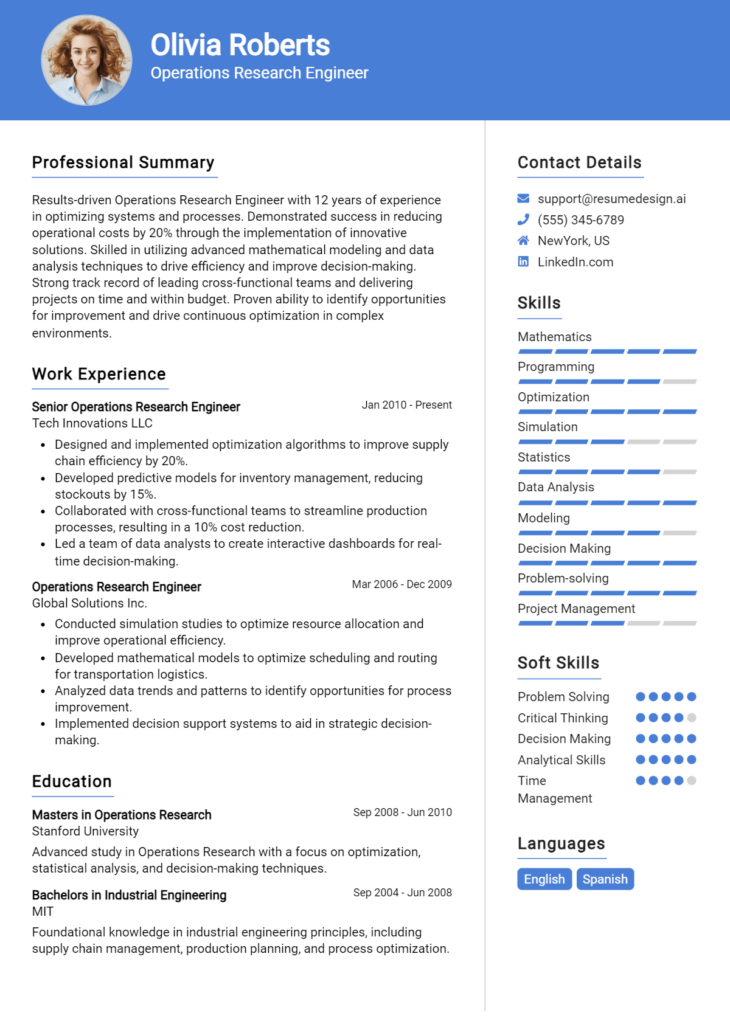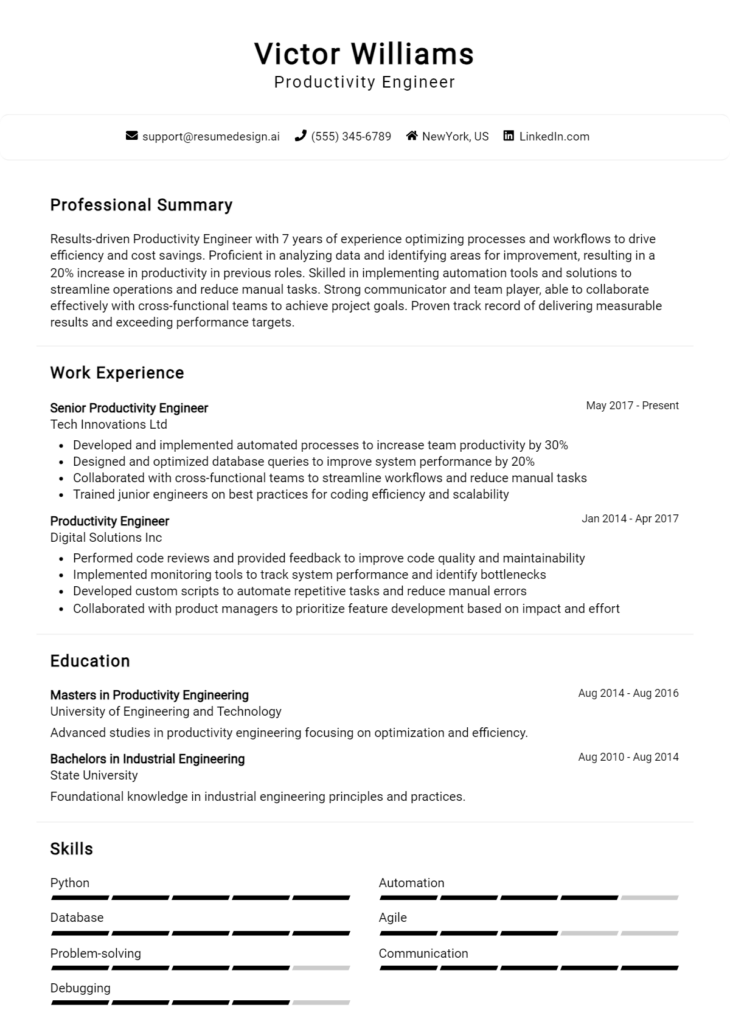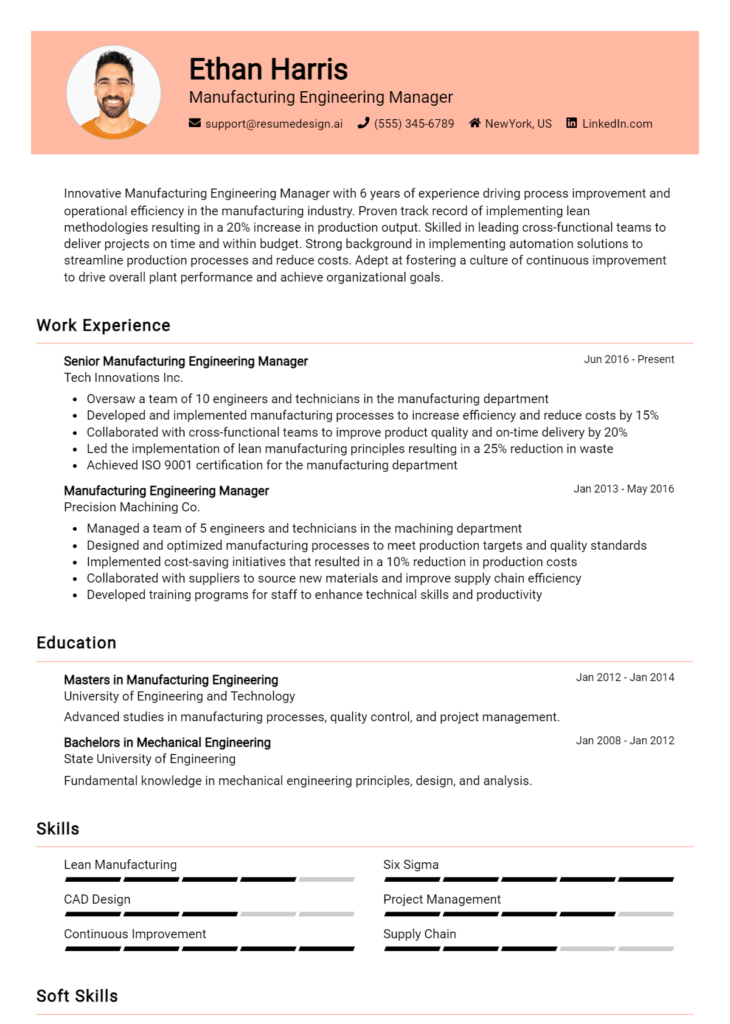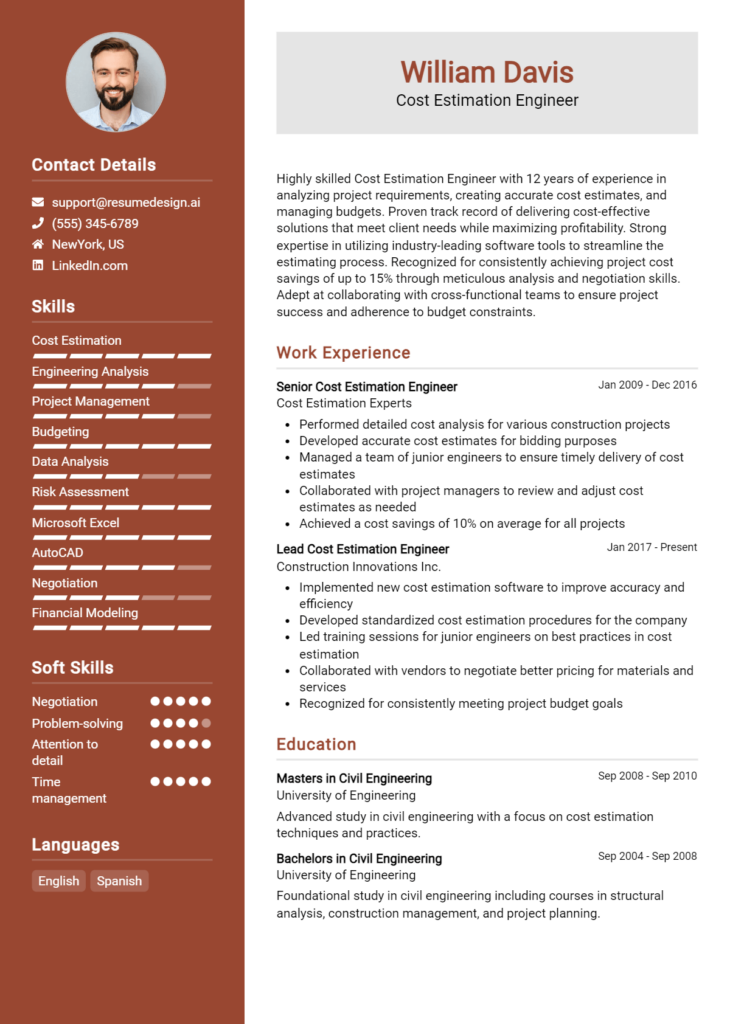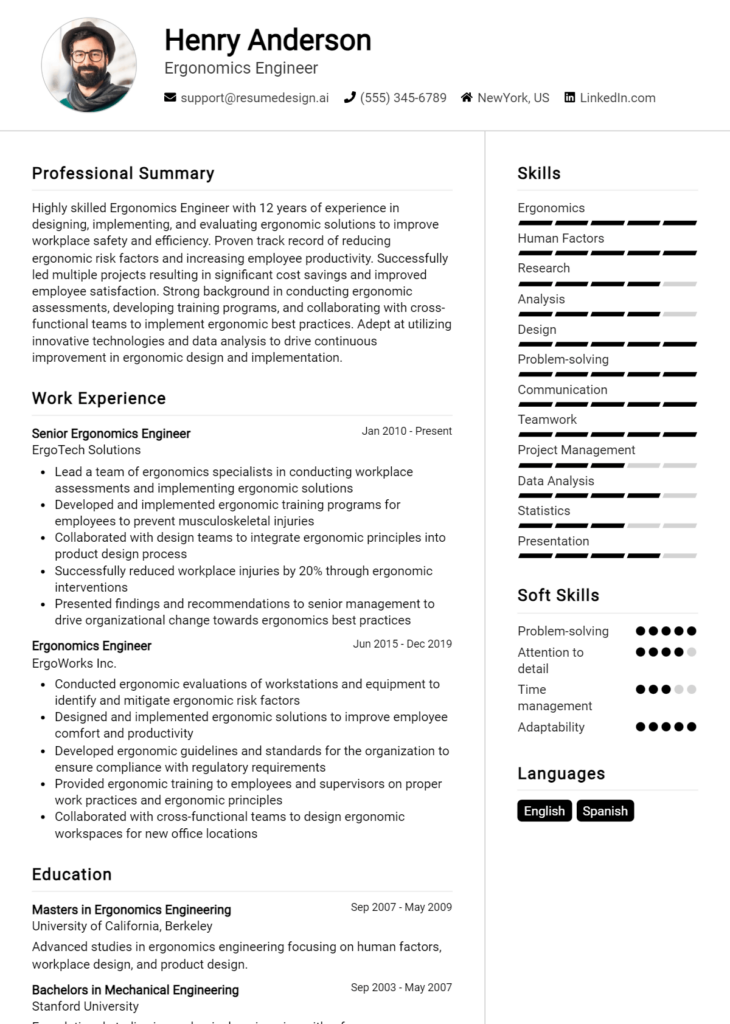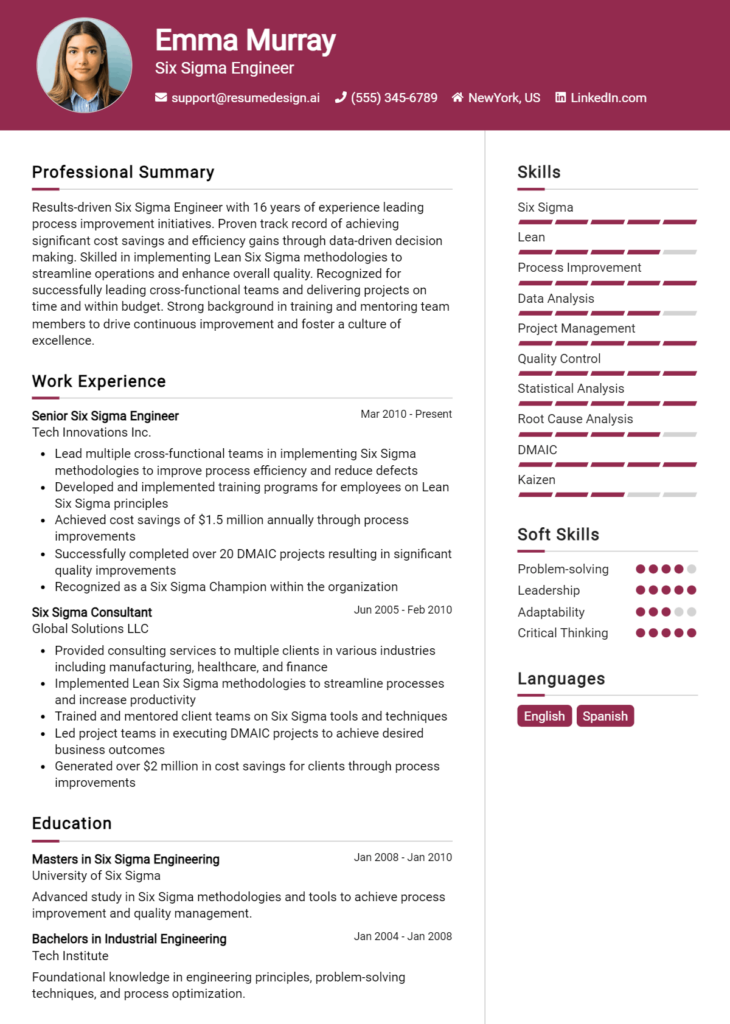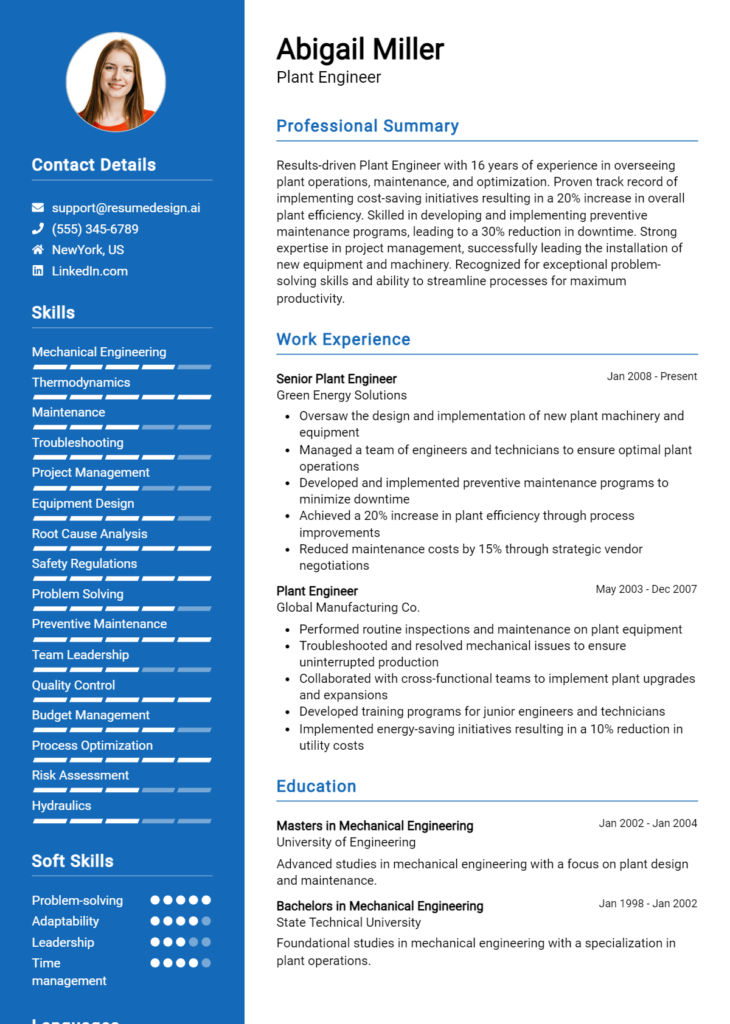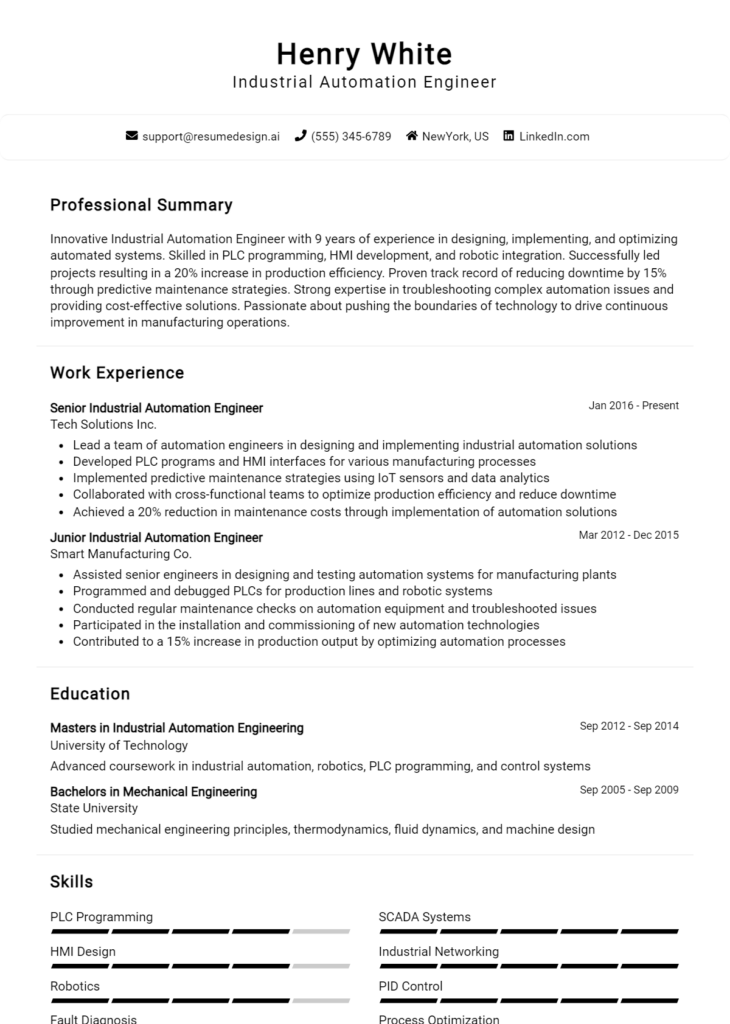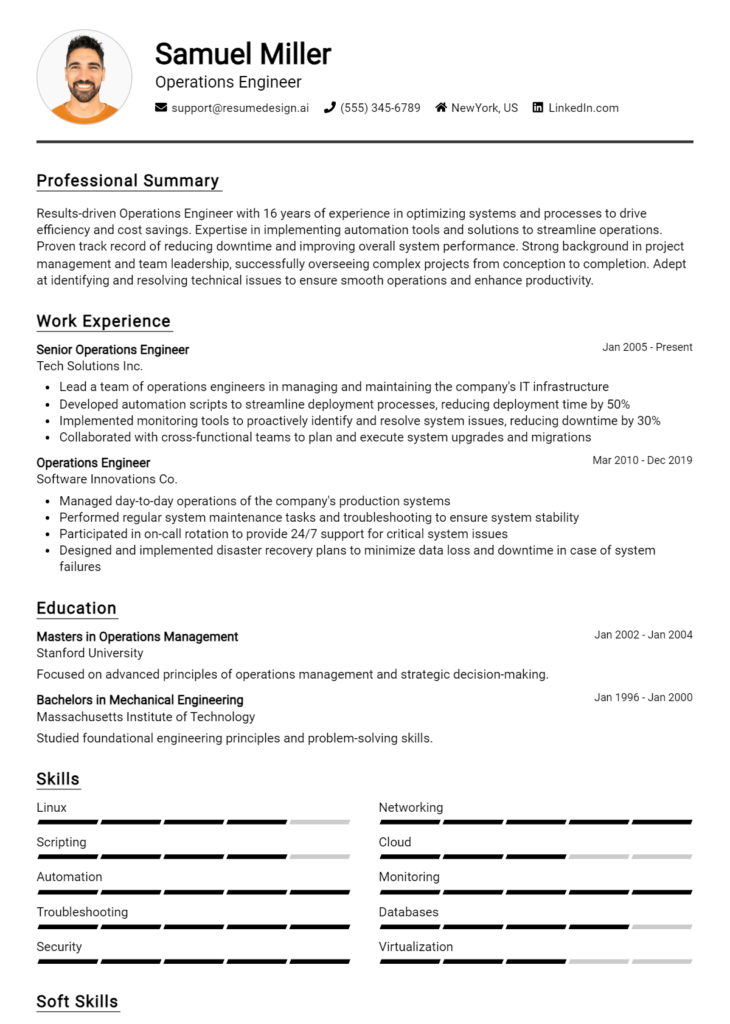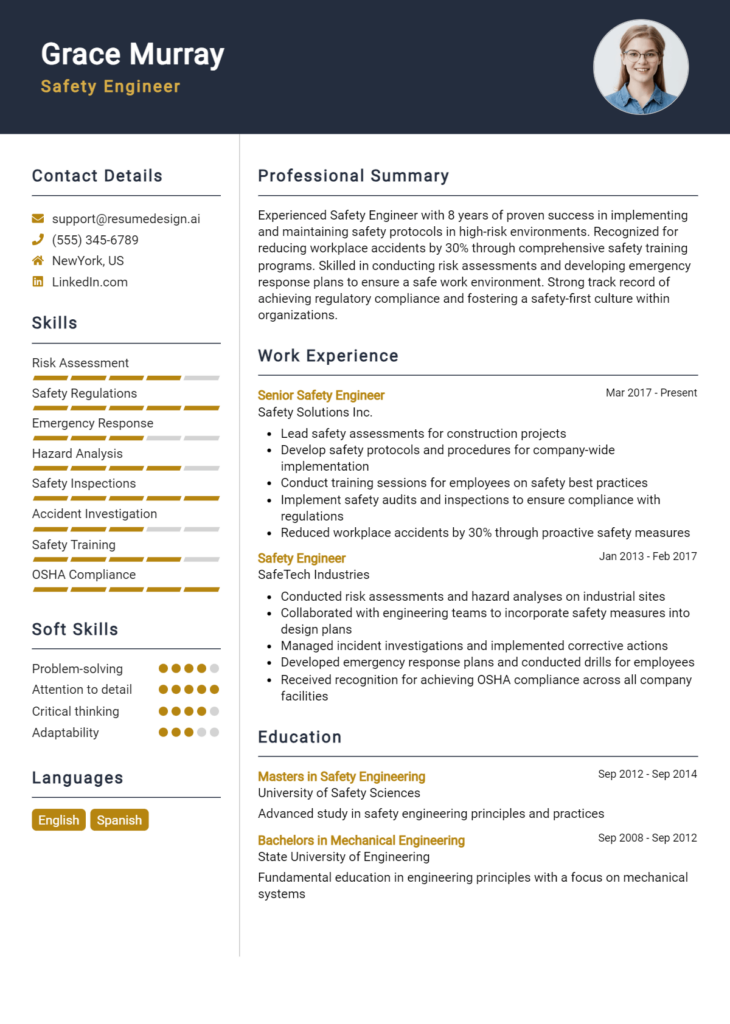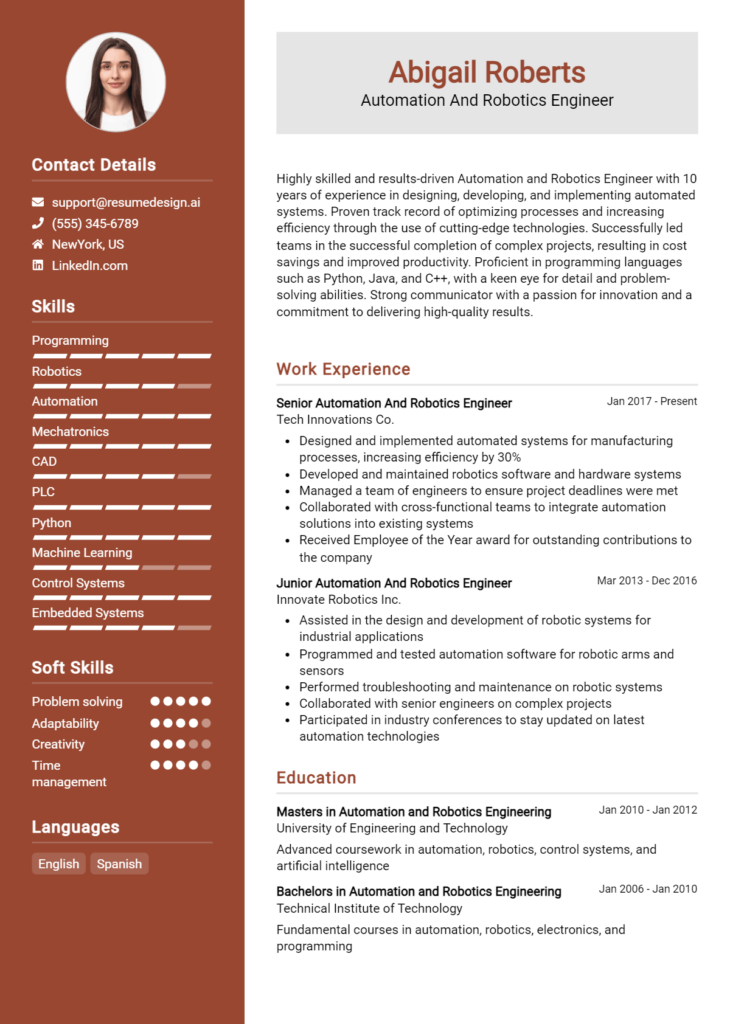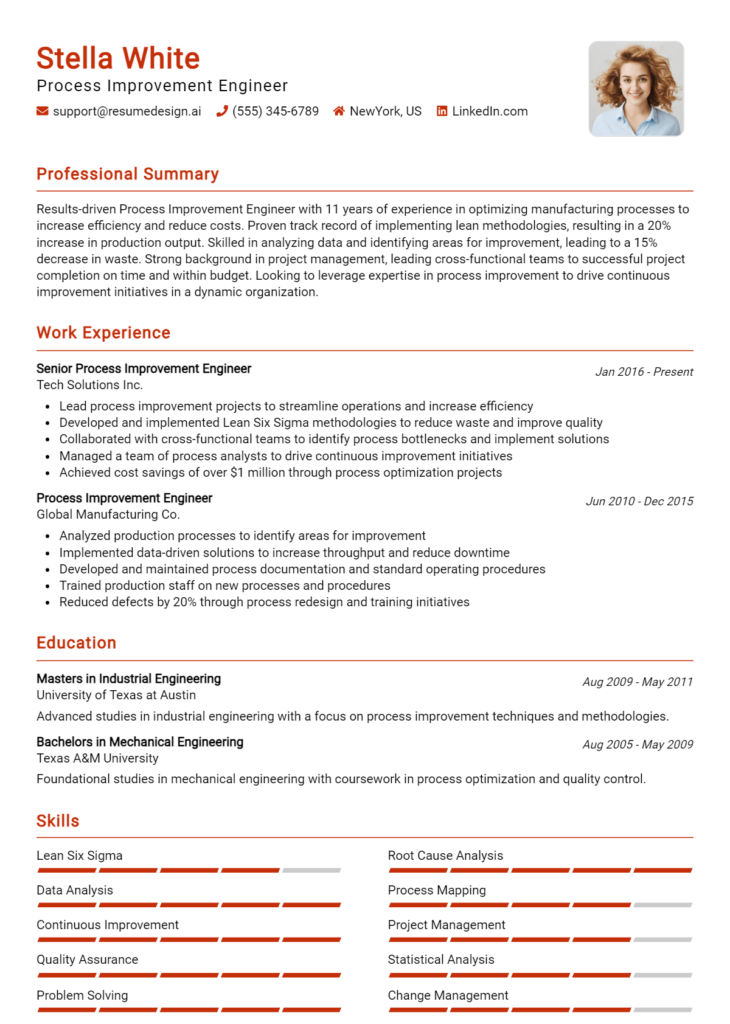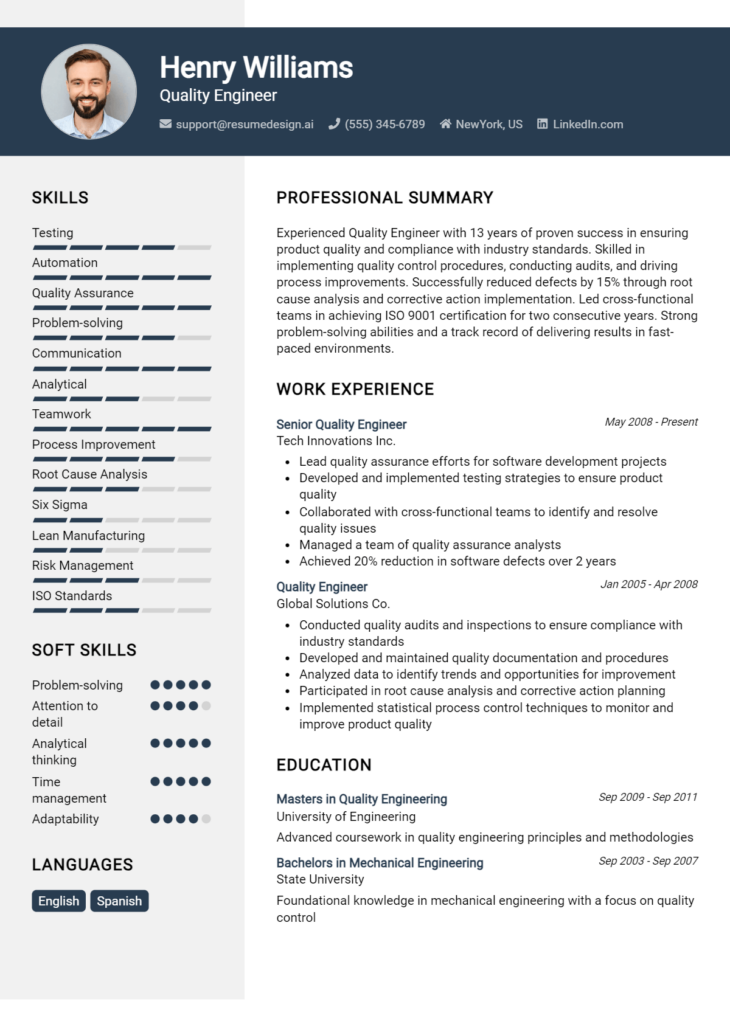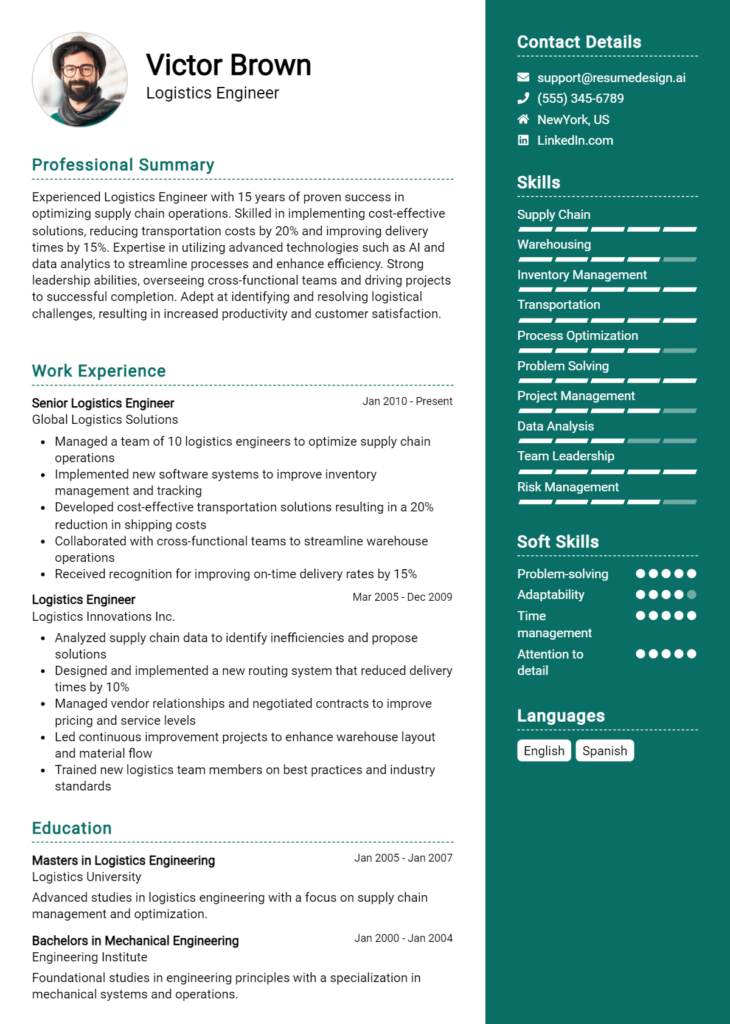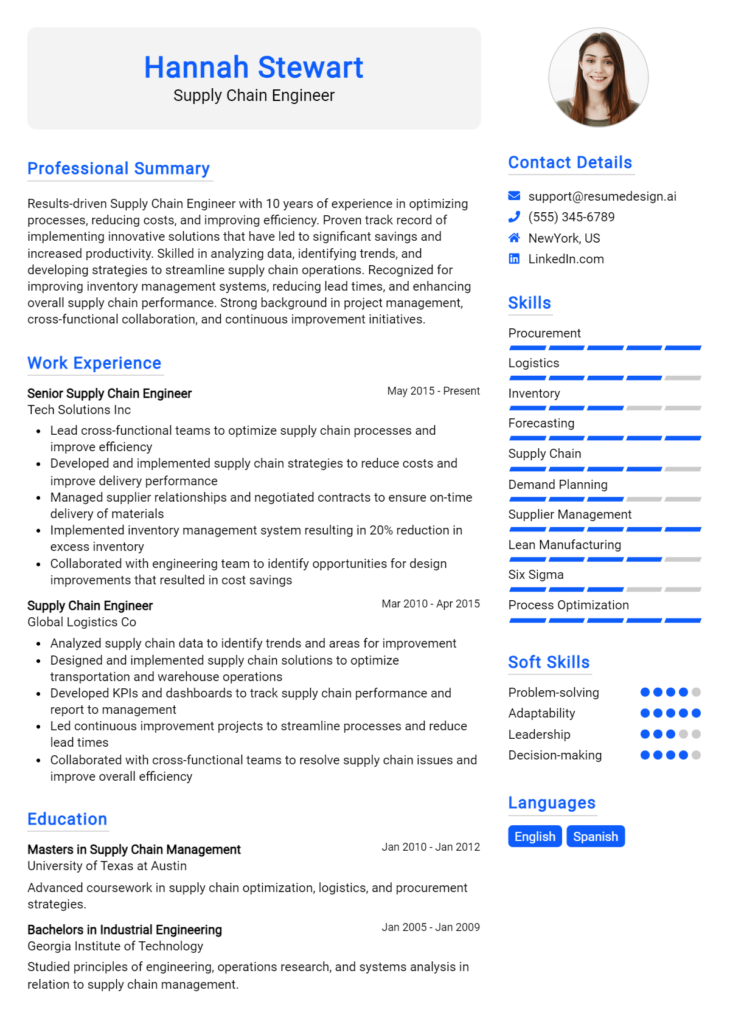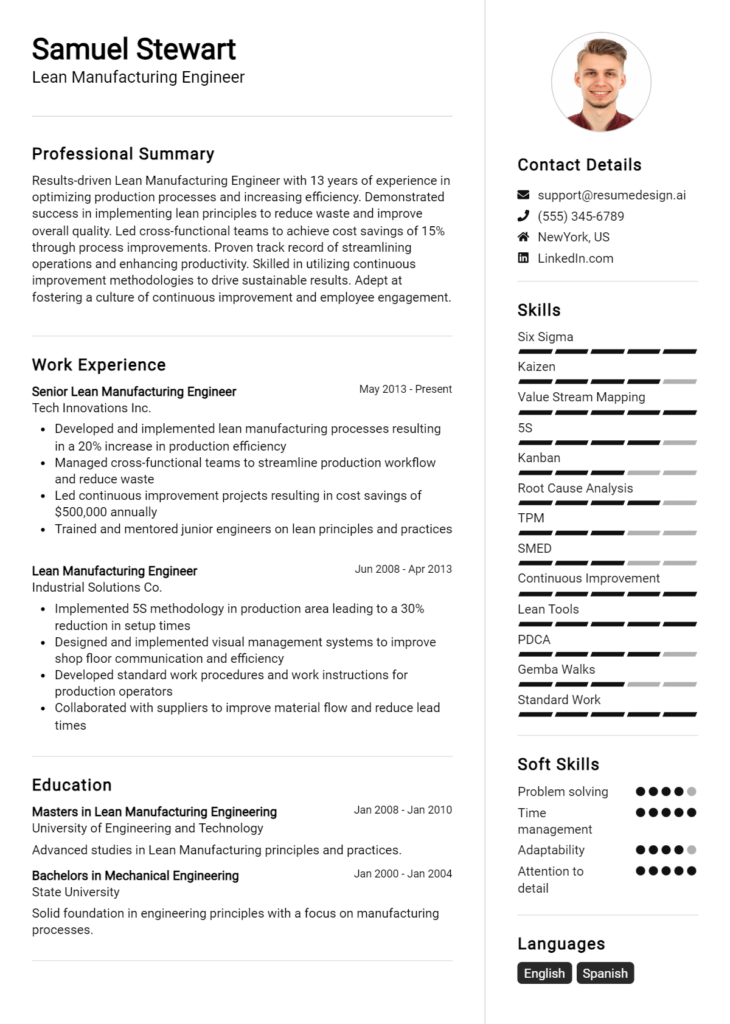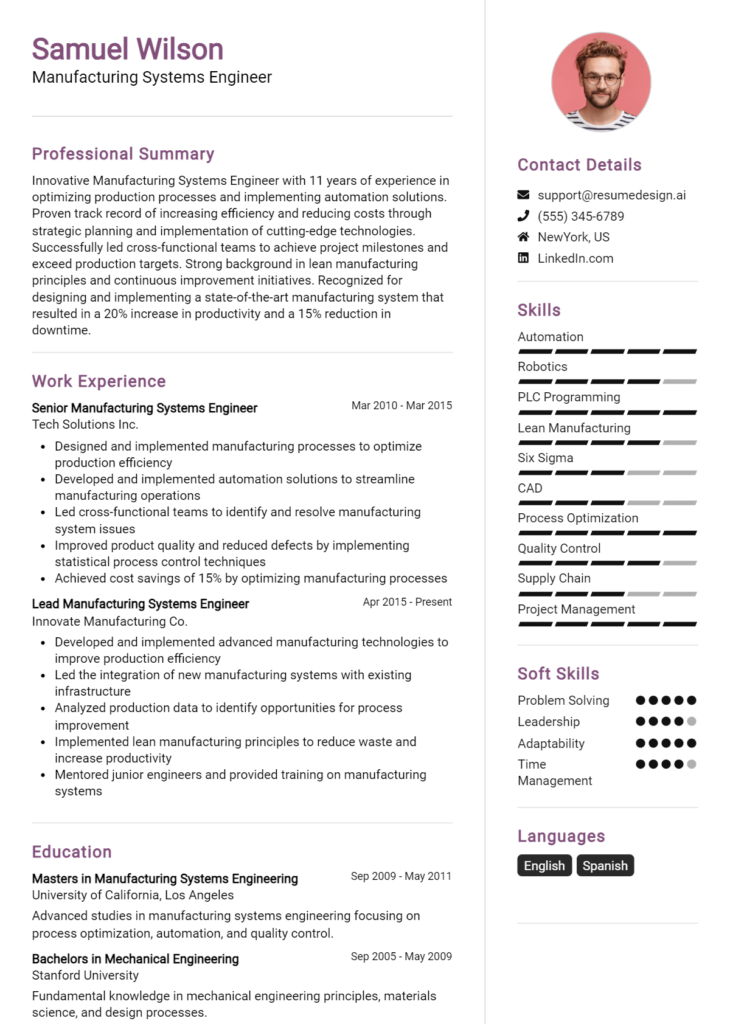Production Planning Engineer Core Responsibilities
A Production Planning Engineer plays a crucial role in optimizing manufacturing processes by efficiently coordinating production schedules, inventory management, and resource allocation. They must possess strong technical knowledge, operational insight, and problem-solving skills to effectively communicate and collaborate with departments such as engineering, manufacturing, and supply chain. These capabilities are essential for achieving organizational goals, enhancing productivity, and minimizing costs. A well-structured resume highlighting these qualifications can significantly enhance job prospects in this competitive field.
Common Responsibilities Listed on Production Planning Engineer Resume
- Developing and maintaining production schedules to meet demand forecasts.
- Coordinating with engineering, manufacturing, and supply chain teams.
- Analyzing production data to identify areas for improvement.
- Managing inventory levels to minimize waste and ensure availability.
- Implementing lean manufacturing principles to enhance efficiency.
- Conducting capacity planning and resource allocation assessments.
- Collaborating on the design of new products to streamline production.
- Monitoring production performance and implementing corrective actions.
- Preparing reports and presentations for stakeholders on production metrics.
- Utilizing ERP and planning software for data analysis and reporting.
- Ensuring compliance with safety and quality standards in production processes.
High-Level Resume Tips for Production Planning Engineer Professionals
A well-crafted resume is crucial for Production Planning Engineer professionals, as it serves as the first impression a candidate makes on a potential employer. In a competitive job market, your resume must not only showcase your technical skills and relevant experience but also highlight your achievements in the field. A compelling resume can open doors to interviews and, ultimately, job opportunities. This guide will provide practical and actionable resume tips specifically tailored for Production Planning Engineer professionals to help you stand out from the crowd.
Top Resume Tips for Production Planning Engineer Professionals
- Tailor your resume to the job description by incorporating specific keywords and phrases that match the requirements of the position.
- Highlight relevant experience by emphasizing roles where you successfully managed production schedules, optimized workflows, or improved efficiency.
- Quantify your achievements by including metrics such as percentage improvements in production efficiency, cost savings, or reductions in lead times.
- Showcase industry-specific skills, such as proficiency in production planning software, inventory management systems, and statistical analysis tools.
- Include any certifications or training relevant to production planning, such as APICS or Lean Six Sigma certifications.
- Utilize a clean and professional format that enhances readability and makes your resume visually appealing.
- Incorporate a summary statement that succinctly outlines your experience and career goals, tailored to the production planning field.
- Highlight teamwork and collaboration skills, as production planning often involves working cross-functionally with other departments.
- Use action verbs and concise language to convey your responsibilities and accomplishments effectively.
By implementing these tips, you can significantly increase your chances of landing a job in the Production Planning Engineer field. A well-structured resume that effectively communicates your skills and achievements will not only catch the attention of hiring managers but also position you as a strong candidate in a competitive job market.
Why Resume Headlines & Titles are Important for Production Planning Engineer
In the competitive field of production planning, a well-crafted resume headline or title is essential for standing out to hiring managers. A strong headline serves as a powerful first impression, encapsulating a candidate's core qualifications and professional identity in just a few words. This concise statement not only grabs attention but also provides a clear snapshot of what the candidate brings to the table, making it easier for employers to recognize their potential fit for the role. It is crucial that the headline is relevant, impactful, and directly aligned with the job being applied for, ensuring that it resonates with the specific needs of the hiring organization.
Best Practices for Crafting Resume Headlines for Production Planning Engineer
- Keep it concise: Aim for no more than 10-12 words to ensure clarity.
- Be role-specific: Use industry-specific terminology that reflects the position.
- Highlight key qualifications: Include your most significant skills or experiences.
- Use action-oriented language: Start with strong verbs to convey your capabilities.
- Tailor to the job description: Align your headline with the specific requirements of the job.
- Showcase achievements: If possible, quantify your accomplishments to enhance credibility.
- Maintain professionalism: Ensure the tone is appropriate for the engineering field.
- Avoid jargon: While being specific is important, too much technical language can confuse.
Example Resume Headlines for Production Planning Engineer
Strong Resume Headlines
"Results-Driven Production Planning Engineer with 5+ Years of Experience in Lean Manufacturing"
“Expert in Supply Chain Optimization and Process Improvement for Enhanced Efficiency”
“Detail-Oriented Engineer Specializing in Production Scheduling and Inventory Management”
Weak Resume Headlines
“Engineer Looking for a Job”
“Experienced Professional”
The strong headlines are effective because they are specific, providing potential employers with immediate insights into the candidate's skills and accomplishments relevant to the production planning field. They use action-oriented language and relevant industry terms, which help in quickly communicating the candidate's value proposition. In contrast, the weak headlines lack detail and relevance, making them forgettable and uninformative. They fail to convey the candidate's unique strengths, which can lead to missed opportunities in a competitive job market.
Writing an Exceptional Production Planning Engineer Resume Summary
A well-crafted resume summary is crucial for a Production Planning Engineer, as it serves as the first impression for hiring managers. This brief yet impactful section quickly encapsulates the candidate's key skills, relevant experience, and notable accomplishments, making it easier for employers to gauge their suitability for the role. A strong resume summary should be concise and tailored specifically to the job description, highlighting the candidate's unique qualifications and demonstrating how they align with the organization's needs. In a competitive job market, an effective summary can be the differentiator that secures an interview and advances the candidate's career.
Best Practices for Writing a Production Planning Engineer Resume Summary
- Quantify Achievements: Use numbers and metrics to illustrate your accomplishments and impact in previous roles.
- Focus on Relevant Skills: Highlight specific skills that are directly applicable to production planning, such as forecasting, inventory management, and process optimization.
- Tailor to the Job Description: Customize your summary for each position you apply to, reflecting the language and requirements of the job listing.
- Keep It Concise: Aim for 2-4 sentences that effectively convey your qualifications without overwhelming the reader.
- Showcase Industry Knowledge: Mention any relevant industry experience or certifications that enhance your credibility as a Production Planning Engineer.
- Use Action-Oriented Language: Start sentences with strong action verbs to convey confidence and proactivity.
- Highlight Problem-Solving Skills: Emphasize your ability to identify issues and implement effective solutions in production processes.
- Include Soft Skills: Don't forget to mention interpersonal skills like communication and teamwork, which are vital in collaborative environments.
Example Production Planning Engineer Resume Summaries
Strong Resume Summaries
Results-driven Production Planning Engineer with over 5 years of experience in optimizing manufacturing processes, achieving a 20% reduction in lead times and a 15% increase in overall efficiency. Proficient in demand forecasting, inventory management, and utilizing ERP systems to streamline operations.
Detail-oriented Production Planning Engineer with a proven track record in enhancing production workflows. Successfully implemented a new scheduling system that reduced downtime by 30% and improved on-time delivery rates by 25%. Strong analytical skills complemented by advanced proficiency in SAP.
Dedicated Production Planning Engineer with expertise in lean manufacturing principles and a passion for continuous improvement. Spearheaded initiatives that led to a 40% decrease in waste and a 10% cost savings on materials, while ensuring compliance with industry standards.
Weak Resume Summaries
Production Planning Engineer with some experience in manufacturing. I have worked on various projects and am looking for a new opportunity.
Experienced engineer seeking to leverage skills in production planning and management. I am a team player and have a strong work ethic.
The strong resume summaries stand out because they are specific, quantifiable, and clearly demonstrate the candidate’s accomplishments and skills relevant to the role of a Production Planning Engineer. They use metrics and action-oriented language to convey a sense of achievement and capability. In contrast, the weak summaries are vague, lack measurable outcomes, and do not effectively communicate the candidate's qualifications or value, making it difficult for hiring managers to see their potential fit for the position.
Work Experience Section for Production Planning Engineer Resume
The work experience section of a Production Planning Engineer resume is crucial as it serves as a testament to a candidate's technical expertise and ability to manage production processes effectively. This section highlights not only the candidate's relevant skills in production planning and engineering but also their capability to lead teams in delivering high-quality products within set timelines and budgets. By quantifying achievements and aligning work experience with industry standards, candidates can clearly demonstrate their value to potential employers, showcasing their contributions to efficiency and productivity in the manufacturing environment.
Best Practices for Production Planning Engineer Work Experience
- Highlight specific technical skills related to production planning software and methodologies.
- Quantify achievements using metrics such as reduced lead times, cost savings, or improved production rates.
- Describe your role in team projects, emphasizing collaboration and leadership.
- Use action verbs to convey impact and responsibility in previous positions.
- Align your experiences with industry standards and trends to demonstrate relevance.
- Include any certifications or specialized training that enhance your qualifications.
- Focus on results-oriented statements that reflect your contribution to organizational goals.
- Tailor your work experience to match the job description of the position you are applying for.
Example Work Experiences for Production Planning Engineer
Strong Experiences
- Led a cross-functional team to implement a new ERP system, resulting in a 30% reduction in inventory costs and a 20% increase in production efficiency.
- Developed and executed a production schedule that improved on-time delivery by 25% over one year while maintaining quality standards.
- Collaborated with engineering and quality assurance teams to streamline processes, achieving a 15% decrease in product defects.
- Managed a team of 10 production planners, overseeing daily operations and training that enhanced team performance metrics by 40%.
Weak Experiences
- Responsible for production planning duties.
- Worked on various projects without detailing specific contributions or outcomes.
- Assisted with team tasks but did not specify the impact of my involvement.
- Participated in meetings about production processes.
The examples listed as strong experiences stand out because they include specific, quantifiable outcomes and demonstrate both leadership and collaborative skills. They illustrate a clear impact on production efficiency and quality, showcasing the candidate's ability to deliver results. In contrast, the weak experiences lack detail, focus, and measurable achievements, making it difficult for employers to gauge the candidate's true capabilities and contributions to their previous roles.
Education and Certifications Section for Production Planning Engineer Resume
The education and certifications section of a Production Planning Engineer resume is crucial as it showcases the candidate's academic background, relevant certifications, and commitment to continuous professional development. This section serves as a testament to the candidate's qualifications, highlighting their preparedness for the complexities of production planning. By providing details on relevant coursework, industry-recognized certifications, and specialized training, candidates can significantly enhance their credibility and demonstrate their alignment with the industry's demands and expectations.
Best Practices for Production Planning Engineer Education and Certifications
- Prioritize relevant degrees such as Industrial Engineering, Production Management, or Operations Research.
- Include certifications from recognized organizations, such as APICS Certified in Planning and Inventory Management (CPIM) or Six Sigma certification.
- Detail any coursework that aligns with production planning, supply chain management, or data analysis.
- Highlight advanced degrees, such as a Master's in Supply Chain Management or an MBA with a focus on operations.
- Incorporate specialized training or workshops that demonstrate skills in production software or methodologies.
- Use clear formatting to ensure easy readability and emphasize key credentials.
- List the most recent educational accomplishments first to showcase your latest knowledge and skills.
- Include any memberships in professional organizations related to production planning or engineering.
Example Education and Certifications for Production Planning Engineer
Strong Examples
- Bachelor of Science in Industrial Engineering, XYZ University (Graduated: 2022)
- APICS Certified in Planning and Inventory Management (CPIM), 2023
- Lean Six Sigma Green Belt Certification, 2021
- Coursework: Advanced Production Planning and Control, Supply Chain Optimization, Data Analytics for Engineers
Weak Examples
- Associate Degree in General Studies, ABC College (Graduated: 2015)
- Certification in Basic Computer Skills, 2019
- Completed a workshop on Time Management, 2020
- Bachelor of Arts in Literature, DEF University (Graduated: 2010)
The strong examples are considered effective because they directly relate to the skills and knowledge required for a Production Planning Engineer role, showcasing relevant degrees and recognized certifications that enhance the candidate's qualifications. In contrast, the weak examples reflect irrelevant or outdated educational qualifications and certifications that do not contribute to the candidate's credibility in the production planning field, potentially undermining their application.
Top Skills & Keywords for Production Planning Engineer Resume
In the competitive field of production planning, having a well-crafted resume that highlights pertinent skills is crucial for standing out to potential employers. A Production Planning Engineer plays a vital role in ensuring that manufacturing processes run smoothly, efficiently, and on schedule. Skills not only reflect a candidate's technical abilities but also demonstrate their problem-solving capabilities, adaptability, and teamwork—qualities that are essential in a dynamic production environment. By effectively showcasing both hard and soft skills, candidates can present themselves as well-rounded professionals ready to tackle the challenges of production planning.
Top Hard & Soft Skills for Production Planning Engineer
Soft Skills
- Strong communication
- Problem-solving
- Team collaboration
- Time management
- Critical thinking
- Adaptability
- Attention to detail
- Decision-making
- Leadership
- Conflict resolution
- Negotiation skills
- Interpersonal skills
- Creativity
- Emotional intelligence
- Customer service orientation
Hard Skills
- Production scheduling
- Inventory management
- Data analysis
- Demand forecasting
- ERP software proficiency
- Lean manufacturing techniques
- Quality assurance methodologies
- Supply chain management
- Process optimization
- Technical drawing and CAD software
- Statistical process control (SPC)
- Project management
- Cost analysis
- Manufacturing process knowledge
- Compliance and safety regulations
By focusing on these essential skills and articulating relevant work experience, a Production Planning Engineer can effectively convey their qualifications and readiness for the role.
Stand Out with a Winning Production Planning Engineer Cover Letter
Dear [Hiring Manager's Name],
I am writing to express my strong interest in the Production Planning Engineer position at [Company Name], as advertised on [Job Board/Company Website]. With a solid background in industrial engineering and over [X years] of experience in production planning, I am confident in my ability to contribute to your team and drive efficiency in your manufacturing processes. My expertise in utilizing advanced planning software and methodologies has consistently resulted in optimized production schedules, reduced lead times, and enhanced resource allocation.
In my previous role at [Previous Company Name], I successfully implemented a data-driven approach to production planning that led to a 15% increase in overall productivity. By closely analyzing production metrics and collaborating with cross-functional teams, I was able to identify bottlenecks and propose actionable solutions that not only improved workflow but also aligned with the company’s strategic goals. My experience in forecasting demand and managing inventory levels has equipped me with the skills necessary to ensure that production meets customer expectations while minimizing waste and costs.
I am particularly drawn to [Company Name] because of your commitment to innovation and sustainability in manufacturing. I admire your recent initiatives aimed at reducing environmental impact, and I am eager to bring my background in lean manufacturing principles and process optimization to your team. I am excited about the opportunity to collaborate with talented professionals who share my passion for continuous improvement and operational excellence.
Thank you for considering my application. I look forward to the possibility of discussing how my skills and experiences align with the needs of your team. Please feel free to contact me at [Your Phone Number] or [Your Email Address] to arrange a conversation.
Sincerely,
[Your Name]
[Your LinkedIn Profile or Website, if applicable]
Common Mistakes to Avoid in a Production Planning Engineer Resume
When crafting a resume for a Production Planning Engineer position, candidates often overlook critical elements that could enhance their chances of landing an interview. A well-structured resume not only highlights relevant skills and experiences but also avoids common pitfalls that can detract from its effectiveness. By steering clear of these frequent mistakes, applicants can present themselves as strong contenders in the competitive field of production planning.
Vague Job Descriptions: Listing past roles without specific responsibilities or achievements can leave hiring managers confused about your actual contributions. Use quantifiable results to illustrate your impact.
Ignoring Keywords: Failing to incorporate industry-specific keywords and phrases from the job description can lead to your resume being overlooked by applicant tracking systems (ATS). Tailor your resume to match the language of the job listing.
Lack of Specific Metrics: Not including specific metrics to showcase your accomplishments can weaken your resume. For example, stating that you improved production efficiency by a certain percentage gives concrete evidence of your capabilities.
Unorganized Format: A cluttered or inconsistent format can make your resume difficult to read and unprofessional. Use clear headings, bullet points, and a consistent font to improve readability.
Overly Technical Language: While technical skills are important, using jargon or overly complex language can alienate hiring managers. Aim for clarity and ensure that your skills are understandable to a broad audience.
Neglecting Soft Skills: Production Planning Engineers often need strong communication and teamwork skills. Failing to mention these can give an incomplete picture of your qualifications. Highlight both technical and soft skills.
Typos and Grammatical Errors: Simple mistakes can undermine your professionalism and attention to detail. Always proofread your resume multiple times, and consider asking a friend to review it for errors.
Lengthy Resume: A resume that exceeds two pages can be overwhelming. Focus on relevant experience and skills that pertain directly to the job you're applying for, ensuring that your resume remains concise and impactful.
Conclusion
As a Production Planning Engineer, your role is pivotal in ensuring that manufacturing processes are efficient and meet production targets. In this article, we discussed the essential skills required for this position, including expertise in supply chain management, proficiency in inventory control systems, and the ability to analyze production data effectively. Additionally, we highlighted the importance of collaboration with cross-functional teams to optimize production schedules and resource allocation.
Furthermore, we emphasized the significance of staying updated with industry trends and utilizing advanced planning software to enhance productivity. The ability to foresee potential disruptions in the supply chain and implementing proactive measures is also crucial for success in this role.
As you reflect on the insights shared, we encourage you to take a proactive step in enhancing your career prospects. Reviewing and updating your Production Planning Engineer resume is vital to showcase your skills and experiences effectively. To assist you in this process, consider utilizing the following resources:
- Explore various resume templates to find a design that suits your professional style.
- Use the resume builder for a step-by-step approach to crafting your resume.
- Check out resume examples to gain inspiration and see what works for others in your field.
- Create a compelling first impression with our cover letter templates to complement your resume.
Take charge of your career today and make sure your resume reflects your qualifications and readiness for the next opportunity as a Production Planning Engineer!

